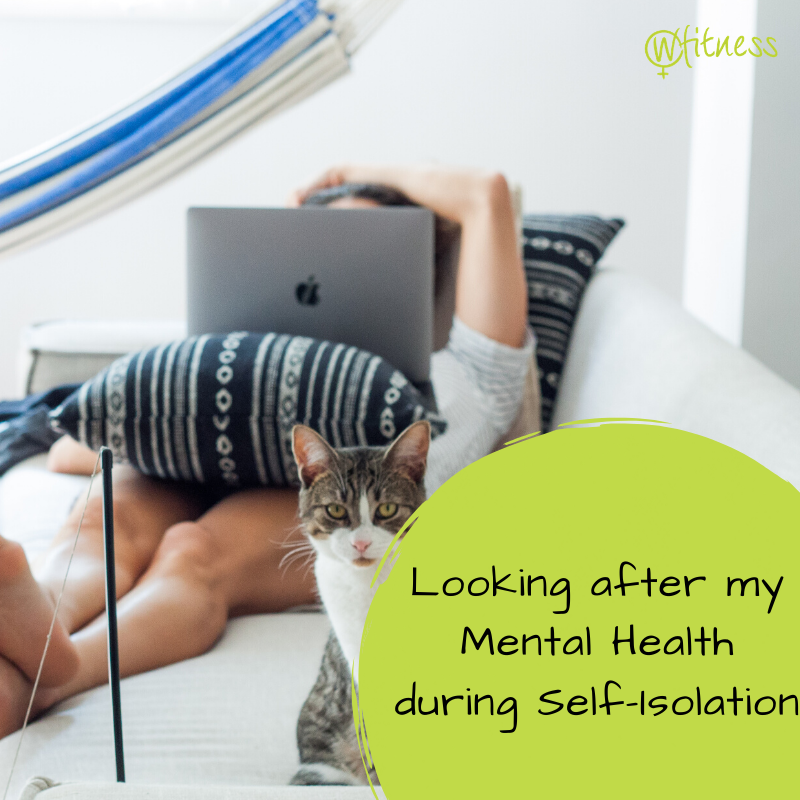People are being asked to self-isolate if they think they have been in contact with someone who is ill with Covid-19 or if they think they might have the disease themselves. The recommended amount of time for self-isolation is 14 days. Whilst others are now being asked to self-isolate for 12 weeks if they are classed as a vulnerable person.
There has been lots of advice on what to do with children to keep them entertained, but what do we do as adults if we are in isolation for weeks? While at first it might sound great, a few weeks with nothing to do will be a huge challenge to our mental health! This is on top of the challenges of managing to buy loo rolls, hand sanitiser etc (ps please don’t stockpile this as it only works if everyone has some and uses it!)
Here are W Fitness’ tips for staving off depression – follow these and you will come out the other end and be ok!
1) First and foremost, keep to a routine. This is vitally important. We need structure in our lives.
2) Get up at your usual time. It’s easy to stay in bed thinking that you have nothing to do, but getting up at your usual time, showering and eating breakfast will give you purpose.
3) Plan your week (albeit a little different to normal). Make sure that you have things to do throughout the day. Make a timetable so that you have things to look forward to. It’s a good idea to do a mixture of things that we need to do (cleaning, paying bills) and things that we like to do (walking, exercising, chatting to a friend, playing a game, reading, baking). Take this time to declutter the house (clear those cupboards you’ve been meaning to sort!) or finish some DIY. The combination of having a structured routine and doing different activities will keep us settled but stimulated both of which are very important for mental well-being and preventing depression.
4) Try keeping a ‘Coronavirus’ diary – just a couple of sentences each day on how it’s affecting you and how you are dealing with it. This ccan really help your mental health, plus it’s a real record of events for people to look back on in the future!
5) If you’re working from home, make sure that you have an allocated workspace and that you set specific times to work with breaks and a proper lunch break. It’s very easy when working from home to let the hours slide past and before you know it the day has gone. Your working hours need structuring and should be separate from the rest of your day.
6) Make your weekends a little different to the rest of the week so that they still feel like weekends. Plan a special meal, clean the car or watch a movie.
7) Get interactive with your friends on Facetime, Skype, Whatsapp, Google Hangout or one of the many others around and play games, chat or simply watch tv together! Elli used to do this with Caroline when she was at uni in Liverpool! It’s important to stay in touch with people on a daily basis! It’s also really important to think of those who may be self-isolating alone, such as grandparents, make sure to give them a call as hearing a friendly voice can make their day.
8) Make sure you get outside as much as you can. Go for a walk or a jog, do some gardening or simply sit outside (weather permitting). Your mood improves when you are outside exercising in the fresh air and sunlight.
9) If you can’t get outside, try one of our many workouts online. Exercise has been proven to improve mood and is often prescribed for mild to moderate depression as it has such a positive effect on mood. Don’t stop exercising!
10) Take this time to learn a new skill. Try painting, drawing, baking or learning a new language. Try to spend between 1 – 2 hours a day learning a new skill.
11) Try to keep in touch with vulnerable people and help however you can. Even if this is just a chat once a day. This can be a very lonely time for many people who might not see or speak to anyone for the two weeks. We crave human contact!
12) Don’t spend all day on social media. You won’t feel connected to anyone and if anything, this could leave you feeling more isolated and left out. Use it wisely to connect with family members, especially ones who are far away.
We have given you some ideas and we hope these are useful but we’re sure you can think of many more so please do let us know. Post on the W Fitness Facebook page and we can create a community of ideas!
Remember, this will not last forever! We can get through this. You are not alone.
Stay strong and stay safe.
We are here if you need us.
Much Love
Caroline & Hannah xx
